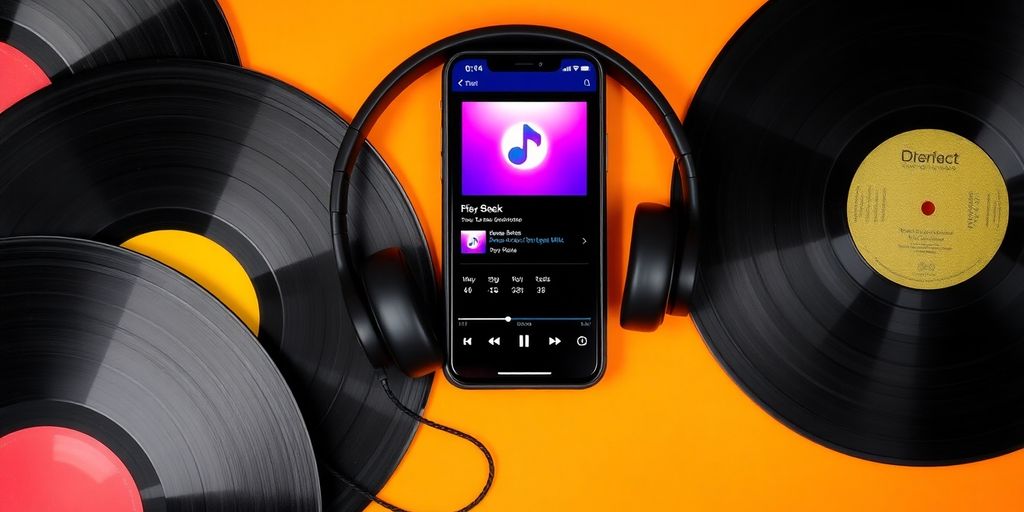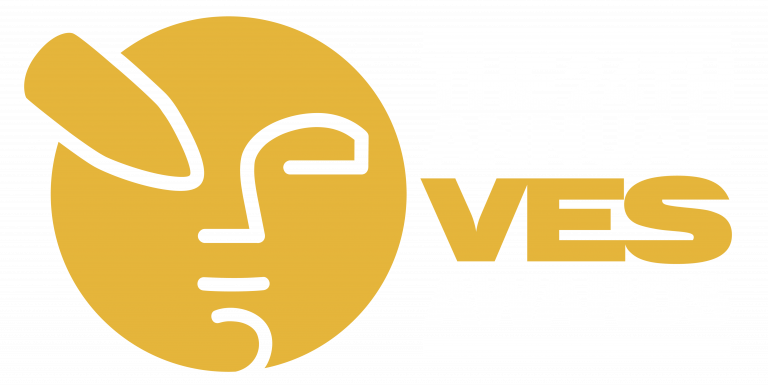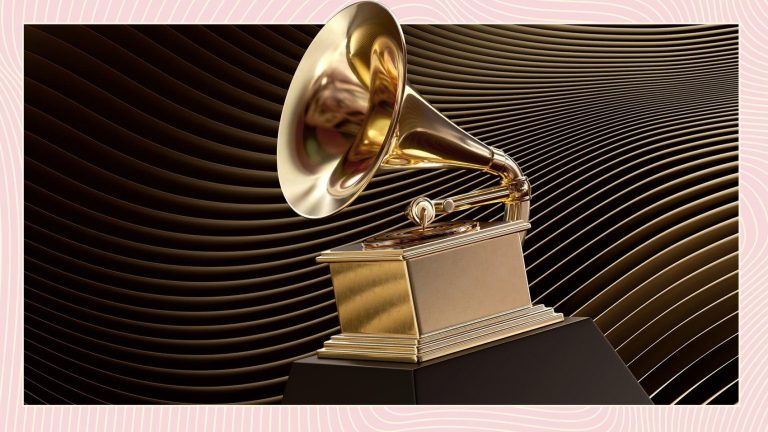
In a world where music is always at our fingertips, downloading your favorite tracks can be a game changer. It allows you to enjoy your go-to tunes offline, create personalized playlists, and maintain complete control over your music collection. This article will guide you through the ins and outs of Music GE, helping you find reliable sources for downloading music, maximizing your experience, and even discovering new artists along the way.
Key Takeaways
- Downloading music allows for offline listening, free from internet interruptions.
- Choosing trusted platforms ensures safe and legal downloads.
- Organizing your music collection helps you easily access your favorite tracks.
- Creating themed playlists can enhance your listening experience for different occasions.
- Staying updated with music trends and technology can keep your library fresh.
Understanding The Appeal Of Music GE
Why Downloading Music Matters
Let’s be real, streaming is cool and all, but sometimes you just want to own your music, right? Downloading gives you that control. It’s like having your own personal vault of tunes, ready to go whenever you want. No relying on internet connections or worrying about a service removing your favorite song. Plus, there’s something satisfying about building your own collection, curating it exactly how you like. It’s a digital version of flipping through vinyl records, but without the dust.
- Offline access is a game-changer for commutes or travel.
- You get to support artists directly (depending on where you download from).
- It’s a hedge against streaming services changing their libraries.
Downloading music is about more than just convenience; it’s about creating a soundtrack for your life, tailored to your preferences and accessible at a moment’s notice. So start downloading, and let the music elevate your everyday moments.
Benefits Of Offline Listening
Okay, let’s talk about the real MVP: offline listening. Imagine you’re on a plane, miles above the earth, and you can still blast your favorite album. Or maybe you’re hiking in the mountains, far from any cell service, but your carefully curated playlist keeps you going. That’s the power of offline listening. No buffering, no data charges, just pure, uninterrupted music. It’s freedom, plain and simple. Plus, it’s a great way to save on data if you’re on a limited plan. Think of all the cat videos you can watch with the data you save!
- No data usage means saving money.
- Consistent playback without interruptions.
- Perfect for areas with poor or no internet.
The Control Of Your Music Library
Having control over your music library is a big deal for many people. Streaming services are great for discovering new music, but they don’t always let you organize things exactly how you want. With downloaded music, you’re the boss. You can create custom playlists, edit metadata, and even convert files to different formats. Want to make a playlist of only songs that start with the letter ‘B’? Go for it! Want to create a super specific genre tag that no one else uses? You can! It’s your music, your rules. You can even find high-quality music downloads to add to your library.
- Personalized organization and tagging.
- Ability to edit metadata (song titles, artist names, etc.).
- Freedom to convert files to different formats.
Finding Reliable Sources For Music GE
Identifying Trusted Platforms
Okay, so you’re looking to expand your music library. That’s awesome! But where do you even start? It’s super important to find reliable sources for your music downloads. You don’t want to end up with a virus or, worse, get into legal trouble. Stick to platforms with a solid reputation and clear policies about copyright. Think of it like buying anything else online – you wouldn’t buy from a shady website, right? Same goes for music.
- Check user reviews and ratings.
- Look for secure payment options (if applicable).
- Make sure the site has a clear privacy policy.
Downloading music from untrustworthy sources can expose you to malware and other security risks. Always prioritize your online safety by using reputable platforms.
Exploring Free And Paid Options
There are tons of ways to get your hands on music, and they don’t all cost the same. You’ve got your free options, which can be great for discovering new artists or finding older tracks. Then there are the paid services, which usually offer higher quality audio and a wider selection. Sites like Musopen offer a ton of free classical music. It really depends on what you’re looking for and how much you’re willing to spend. Here’s a quick breakdown:
| Option | Cost | Pros | Cons |
|---|---|---|---|
| Free Sites | Free | Great for discovery, budget-friendly | Limited selection, potential for lower audio quality, ads |
| Paid Downloads | Per Track | High audio quality, permanent ownership, no ads | Can be expensive if you download a lot of music |
| Subscriptions | Monthly Fee | Access to a vast library, offline listening (usually), curated playlists | Recurring cost, music is only accessible while you’re subscribed |
Legal Considerations For Downloads
Alright, let’s talk about the not-so-fun but super important stuff: legalities. Downloading music without permission is a big no-no. It’s basically stealing, and it hurts the artists who create the music we love. Always make sure you’re downloading from a legitimate source that has the rights to distribute the music. Look for sites that offer DIY releases or have licensing agreements with record labels. If something seems too good to be true (like a site offering every song ever made for free), it probably is. Pay attention to copyright notices and terms of service. Trust me, it’s not worth the risk of getting a fine or a nasty letter from a lawyer. It’s always better to play it safe and support the artists you enjoy by downloading legally.
Maximizing Your Music Download Experience
Choosing The Right File Format
Okay, so you’re ready to download some tunes. Awesome! But before you click that download button, let’s talk file formats. It’s not as boring as it sounds, I promise. Choosing the right file format can seriously impact your listening experience.
- MP3: The old reliable. It’s compatible with basically everything and the file sizes are pretty manageable. Great for everyday listening when you don’t want huge files hogging space.
- FLAC: This is where things get fancy. FLAC is lossless, which means you’re getting a super high-quality audio file. Think CD quality or better. The downside? The files are much bigger, so they’ll eat up more storage space. Audiophiles swear by it.
- AAC: Another lossy format, similar to MP3 but often considered a bit better in terms of sound quality at the same bitrate. It’s the format used by iTunes/Apple Music.
Think about how you’ll be listening to your music. If it’s mostly on your phone with earbuds, MP3 might be just fine. But if you’ve got a killer sound system and a good pair of headphones, you might want to consider FLAC to really hear the difference.
Organizing Your Music Collection
Let’s be real, a disorganized music library is a nightmare. Trust me, I’ve been there. You spend ages downloading all your favorite songs, and then they’re just scattered everywhere, with weird file names and no album art. Here’s how to avoid that:
- Consistent Naming: Use a standard naming convention for your files. Something like "Artist – Song Title.mp3" or "Artist – Album – Track Number – Song Title.flac".
- Folder Structure: Create a clear folder structure. I like to organize by Artist > Album. Makes it easy to find what you’re looking for.
- Tagging: This is where the magic happens. Use a music tag editor (like MusicBrainz Picard or Mp3tag) to add metadata to your files. This includes the artist, album, track title, genre, album art, and more. Properly tagged files will show up correctly in your music player.
Backing Up Your Downloads
Okay, this is the most important part. You’ve spent time and maybe even money building your music collection. Don’t lose it all! Backing up your music is crucial.
Here’s a simple backup strategy:
- External Hard Drive: Copy your entire music folder to an external hard drive. Keep it in a safe place.
- Cloud Storage: Services like Google Drive, Dropbox, or OneDrive are great for backing up your music. They offer automatic syncing, so your files are always backed up.
- Multiple Backups: Seriously, don’t rely on just one backup. Have at least two copies of your music, in different locations. Redundancy is key. Consider using trusted platforms for music downloads to ensure file integrity and security during the backup process.
Discovering New Artists Through Music GE
Utilizing Recommendation Features
So, you’re looking to branch out and find some new tunes? Music GE platforms are usually pretty good at suggesting stuff you might like. The key is to actually use those features! Most platforms have algorithms that analyze your listening habits and then spit out recommendations. It’s not always perfect, but it’s a decent starting point. I’ve found some of my favorite artists just by clicking on those "Recommended for You" playlists. Don’t be afraid to explore!
Exploring Curated Playlists
Curated playlists are where it’s at if you want to find new artists. These aren’t just algorithm-generated lists; they’re usually put together by real people who know their stuff. Look for playlists that focus on specific genres or moods that you’re into. You might find a hidden gem or two. I like to check out playlists made by record labels or music blogs. They usually have their finger on the pulse of what’s new and exciting.
Engaging With Music Communities
Don’t underestimate the power of music communities! Online forums, subreddits, and even social media groups can be great places to discover new artists. People are always sharing their favorite finds and recommending new music. Plus, you can get a sense of what’s popular and what’s up-and-coming. I’ve found some really cool underground artists just by lurking in music forums. It’s also a good way to connect with other music lovers and share your own discoveries.
Finding new music can feel overwhelming, but it doesn’t have to be. Start small, explore different avenues, and don’t be afraid to step outside your comfort zone. You never know what you might find!
The Future Landscape Of Music Downloading

Trends In Music GE
The way we get our music is changing fast. It’s not just about having songs; it’s about how we get them and what we do with them. One big trend is the focus on better sound quality. People want more than just okay audio; they want the best possible listening experience. This means more platforms are offering high-resolution audio files. Another trend is making downloads faster and easier, so you can get your music without waiting forever. The digital platforms are evolving to meet these demands.
Technological Advancements
Technology is making it easier to find, download, and manage music. Here are a few things to keep an eye on:
- Better compression: New ways to make files smaller without losing quality.
- Improved download speeds: Faster internet means quicker access to your music.
- Smarter organization tools: Software that automatically sorts and tags your music library.
The future of music downloading will likely involve more integration with AI. Imagine AI-powered tools that recommend music based on your listening habits, automatically create playlists, and even remaster older tracks to improve their sound quality.
The Shift Towards High-Quality Audio
People care more about how their music sounds. Streaming services offer high-quality options, but downloading gives you even more control. Here’s why this matters:
- Better listening experience: High-quality audio reveals details you might miss in compressed files.
- Future-proofing your collection: As technology improves, high-quality files will still sound great.
- Supporting artists: Buying high-quality downloads can be a better way to support the musicians you love.
It’s an exciting time for music lovers! The future of downloading is all about better sound, faster access, and more ways to enjoy your favorite tunes.
Creating The Perfect Playlist With Music GE
Themed Playlist Ideas
Coming up with a theme is the first step to a great playlist. Don’t just throw songs together! Think about a mood, an activity, or even a specific time period. For example, you could create a playlist for:
- Working out (high-energy pop and electronic)
- Relaxing at home (acoustic, ambient, or classical)
- A road trip (a mix of sing-along classics and new discoveries)
- A specific decade (80s anthems, 90s grunge, etc.)
- A particular artist or genre deep dive
Using Playlists For Events
Playlists are essential for setting the right atmosphere at any event. Whether it’s a party, a dinner, or even just background music for a study session, a well-curated playlist can make all the difference. Consider the audience and the purpose of the event when selecting music. For a party, you’ll want upbeat and danceable tracks. For a dinner, something more mellow and conversational. For studying, instrumental or ambient music can help with focus. You can even use a music choice app to create the perfect soundtrack for every moment.
Collaborative Playlist Options
Collaborative playlists are a fantastic way to discover new music and share your tastes with friends. Most music platforms offer the option to create a playlist that multiple people can add to. This is great for:
- Group projects (everyone contributes their favorite study music)
- Road trips (everyone gets a say in the soundtrack)
- Parties (guests can add songs they want to hear)
Creating a collaborative playlist is easy. Simply create a new playlist on your preferred platform and then invite your friends to join. They’ll be able to add, remove, and reorder songs, creating a shared musical experience.
It’s a fun way to create a playlist and see what everyone else is listening to!
Enhancing Your Listening Experience

Investing In Quality Audio Equipment
Okay, so you’ve got all your favorite tunes downloaded and ready to go. But are you really hearing them the way they’re meant to be heard? Probably not, if you’re still rocking those earbuds that came free with your phone. Investing in decent audio equipment can make a world of difference. It doesn’t have to break the bank, but a good pair of headphones or speakers will reveal details in your music you never knew existed. Think about it: better bass, clearer vocals, and a more immersive soundstage. It’s like upgrading from a blurry photo to a high-definition masterpiece.
Exploring Different Genres
Stuck in a musical rut? We’ve all been there. Listening to the same songs over and over can get stale pretty fast. One of the best ways to spice things up is to branch out and explore different genres. You might be surprised at what you discover. Maybe you’re a die-hard rock fan who secretly loves classical music, or a pop enthusiast who finds solace in the blues. Don’t be afraid to experiment! Check out some equalization tips to get the most out of each genre.
Here are a few ideas to get you started:
- Indie Pop: Upbeat and catchy, perfect for a summer day.
- Lo-Fi Hip Hop: Chill vibes for studying or relaxing.
- Classical Piano: Elegant and timeless, great for focus.
Participating In Music Forums
Want to take your music obsession to the next level? Get involved in online music forums. These are great places to connect with other music lovers, share your favorite artists, and discover new music. You can find forums dedicated to specific genres, artists, or even audio equipment. It’s a great way to learn more about music, get recommendations, and have interesting discussions. Plus, you might even make some new friends who share your passion.
Being part of a music community can really deepen your appreciation for the art form. It’s not just about listening to music; it’s about sharing experiences, exchanging ideas, and learning from others. You might discover hidden gems, gain new perspectives, and expand your musical horizons in ways you never thought possible.
Wrapping It Up
So, there you have it! If you want to grab your favorite songs, sites like ColdMP3 make it super easy to download music without any fuss. Whether you’re after the convenience of offline listening, better sound quality, or just want to keep your music organized, downloading is the way to go. Just remember to stick to trusted platforms to keep your device safe and support the artists you love. Now, go ahead and start building that music library of yours! It’s all about having the tunes you love right at your fingertips, ready to set the mood whenever you need it.
Frequently Asked Questions
Why is downloading music important?
Downloading music lets you listen offline without needing the internet. It also gives you control over your music and often better sound quality.
What are some good places to download music?
You can find music on trusted sites like ColdMP3, which offer both free and paid downloads to support artists.
Is it safe to download music?
Yes, as long as you use reliable websites. This helps avoid harmful files and supports the music industry.
How can I keep my music organized?
Make folders for artists or albums, and use a consistent naming system. This will help you find your songs easily.
What file formats should I choose when downloading music?
MP3 is common and takes less space, while FLAC offers better sound quality if you have enough storage.
How can I discover new music?
Use recommendation features on music sites, check out curated playlists, and join music communities to find new artists.








